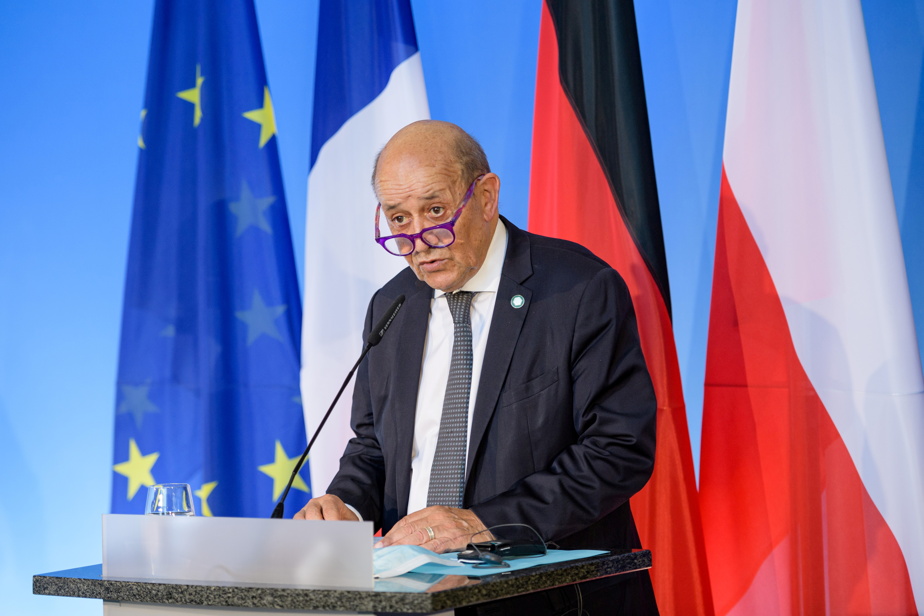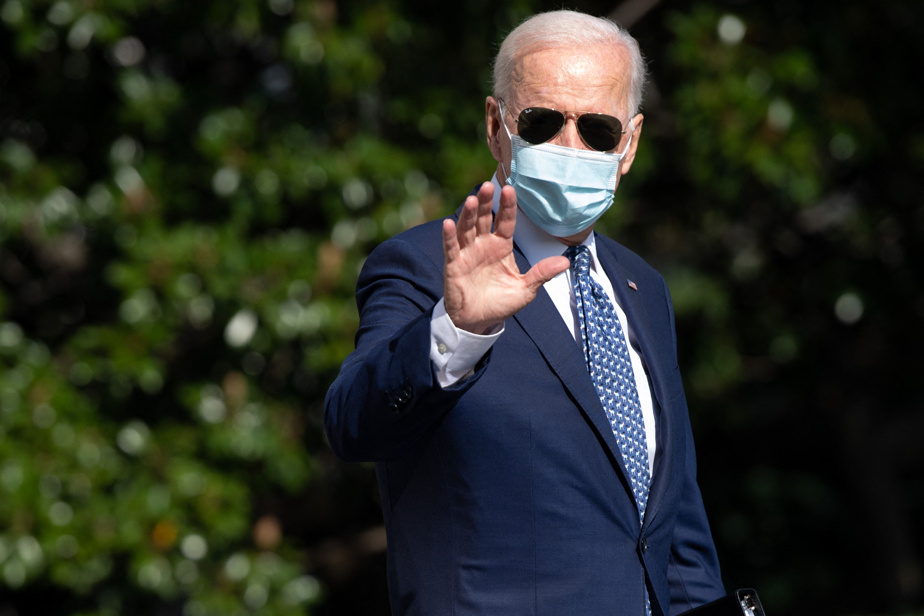(UN) A transatlantic diplomatic crisis rocked the reunification of multilateralism at the United Nations on Monday: Europeans lent their support to France, which is not attacking the United States, despite trying to appease President Joe Biden.
The head of European diplomacy, Josep Borrell, announced that the foreign ministers of the 27 countries, meeting in New York on the sidelines of the annual United Nations General Assembly, “clearly expressed their solidarity with France”.
For them, the Franco-American dispute over the declaration of the Indo-Pacific alliance between the United States, the United Kingdom and Australia “affects the entire European Union through its strategic implications,” he explained.
Joe Biden, who arrived in New York on Monday for the first meeting of the United Nations General Assembly, took the lead by promising to reopen the US border closed to Europeans for more than a year due to COVID-19.
If the decision was made for health reasons, the solution found was also the fruit of diplomacy, a senior US official said, noting that the chosen moment was not relevant to the transatlantic crisis.
A consolation prize Paris savored a little. “It’s a good thing. Why are you coming so late?” said the head of French diplomacy, Jean-Yves Le Drian, during a press conference, recalling that this was an old request from the Europeans.

Photo by Jens Schluetter, Reuters
French Foreign Minister Jean-Yves Le Drian
In New York, Joe Biden will be able to highlight America’s “return” as a trusted partner with allies who have been abused during Donald Trump’s four years in office.
But his message has been troubling since he announced, on September 15, a security pact made with Australia and the United Kingdom to counter Beijing, nicknamed AUKUS. This new partnership set fire to transatlantic powder, because it took place behind the backs of the French, who had lost a huge contract for submarines ordered by Canberra.
“a bygone era”
Jean-Yves Le Drian, as he has been doing for several days, but this time on American soil, denounced the “brutal” decision, the “lack of consultation”, and the “breach of trust between allies”. This is like “the backlash of an era we hoped would end,” he said, in a clear new reference to the Trump era.
France, which recalled its ambassadors in Washington and Canberra in an unprecedented gesture, remains firmly opposed to this “betrayal”. It had already received the support of EU leaders earlier today.
European Commission President Ursula von der Leyen ruled the way Paris was “treated” as “unacceptable”, in an interview on US CNN.
European Council President Charles Michel also denounced a “lack of loyalty” on the part of the United States and called for strengthening the “EU’s capacity to act” on the international stage.
Josep Borrell said the 27 countries’ ministers assessed the “European presence” in Afghanistan in order to facilitate the evacuation of Afghans threatened by the Taliban and the provision of humanitarian aid in the country, without further details.
The chaotic withdrawal from Afghanistan imposed by Joe Biden also caused many gnashing of teeth on the Old Continent.
Biden Macron expected call
Already over the weekend, London and Washington tried to persuade their French ally.
“Our love for France is unshakable,” Britain’s Boris Johnson said on the plane that took him to New York.
A senior US official said President Biden, in the face of requests for “clarification” from Paris and Brussels, was “impatient” to discuss the “way forward” by phone with his French counterpart Emmanuel Macron, who had given up going to New York. Stressing that the Democratic leader requested such an interview.
“We understand the French position,” even if “we do not share it,” he added.
This eagerly awaited phone call would take place “in the coming days,” said only Jean-Yves Le Drian, retracting his failure, for his part, to “plan a meeting” with the head of US diplomacy, Anthony Blinken.
Indeed, the American Agenda appears to be a summary of the White House’s diplomatic priorities.
And Joe Biden planned to meet only on Tuesday, on the sidelines of the United Nations meeting, with Australian Prime Minister Scott Morrison, before receiving British Prime Minister Boris Johnson upon his return to the White House. Anthony Blinken spoke to him on Monday with his new British counterpart Liz Truss.

“Extreme twitteraholic. Passionate travel nerd. Hardcore zombie trailblazer. Web fanatic. Evil bacon geek.”


